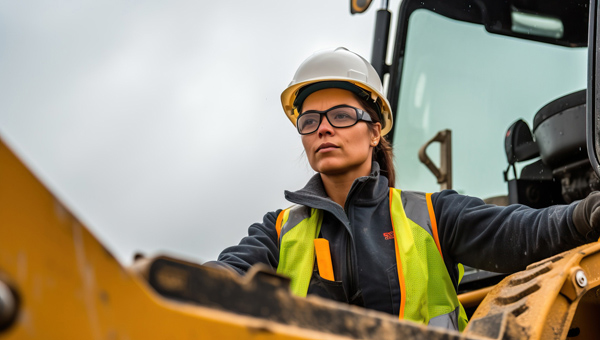Safety and Maintenance: The Cornerstones of Heavy Equipment Operation

When you go through a professional heavy equipment certification program at West Coast Training, you’ll spend many hours in the field earning practical experience that you’ll be able to apply no matter the scale of the job you take on. You’ll also learn something even more important: as the resident heavy equipment operator, your coworkers, the public, and the machinery itself all depend on strict, diligent safety practices and careful preventative maintenance. These are the cornerstones of heavy equipment operation.
Heavy Equipment: Is It Safe?
While the machinery used on modern jobsites is usually equipped with advanced safety features, it is still only as safe as its operator. There are many things that can go wrong, usually as a result of human error. For example, a machine that is incorrectly loaded by an untrained operator can be at risk of tipping over, and one that is handled carelessly can damage its surroundings and put other workers at risk.
Some of the Safety Practices You’ll Learn
When it comes to safety in construction work, a lot of it boils down to attention to detail. When you attend the Heavy Equipment Operator Programat West Coast Training, emphasis will be placed on learning how to inspect a jobsite for safety, picking any potential hazards out before they become a problem. For example, you’ll learn how to spy electrical cables that may pose a risk during excavation work so that they can be secured before the work begins.
You’ll also learn the ins and outs of each individual machine so that you can perform safety checks on them before each day of work begins. One of the most important skills our training will equip you with is the ability to read a load chart. In this way, you’ll ensure that the machinery is never at risk of being pushed past its maximum capacity.
Preventative Maintenance Is Key
The other cornerstone of heavy equipment operation that is emphasized in our courses is preventative maintenance. Machinery that has not been properly cared for is at risk of unexpected failure, which can create unsafe working conditions and cause unnecessary costs to be incurred for your employer. Needless to say, employers will prefer to hire operators who are trained to avoid problems like that, which is done by going down a regular maintenance checklist.
As a trained heavy equipment operator, you’ll create these checklists yourself, and they will vary depending on the machinery being used. In most cases, however, you’ll regularly check things like batteries, belts, and coolant levels, while also carefully monitoring the operating hours of the equipment.
Start Your Training Today
Once you start the Heavy Equipment Operator Program at West Coast Training, you won’t just learn how to stay safe at the workplace; you’ll also be equipped with a variety of other marketable skills. You will learn how to operate heavy machinery that is commonly used on construction sites all over the country—including loaders, scrapers, dozers, earthmovers, and more. You’ll also quickly begin to understand the overall process of civil engineering itself, rendering you invaluable on any construction site and in high demand by employers in this fast-growing sector of the industry. Apply at West Coast Training and get started today!
